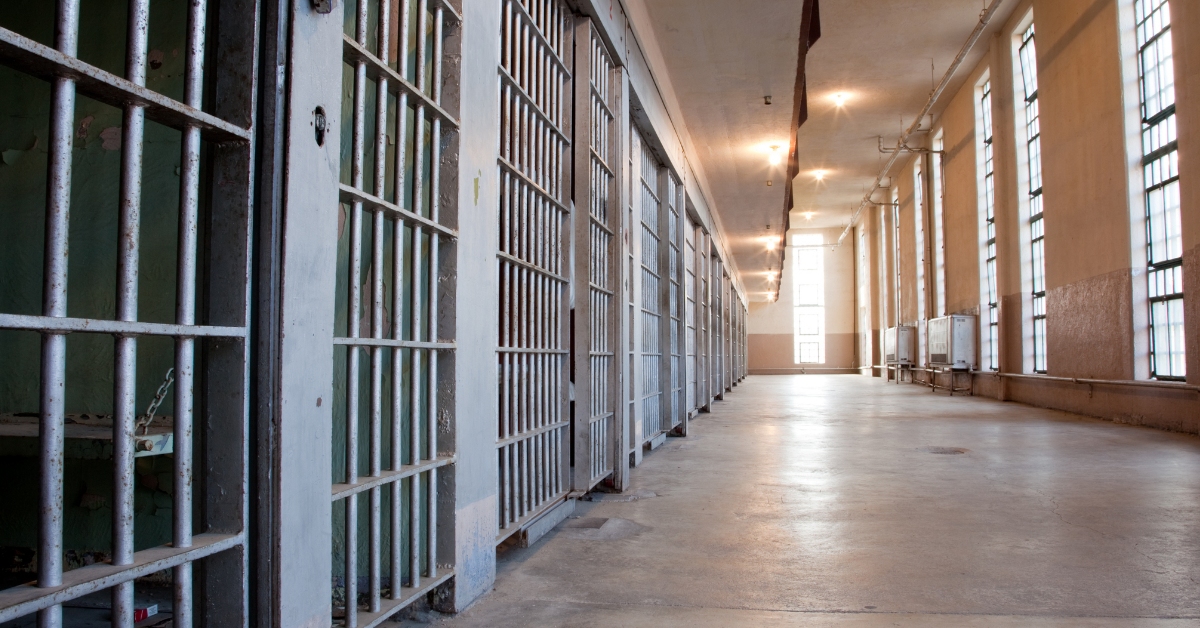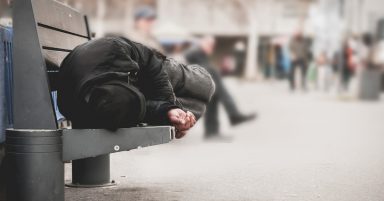Putting prisoners in lengthy spells of coronavirus quarantine risked breaching their human rights, with a prison watchdog warning the “consequences of such prolonged isolation cannot be overstated”.
Wendy Sinclair-Gieben, of His Majesty’s Inspectorate of Prisons for Scotland (HMIPS), made the warning in her annual report on Friday and added that “prisons became places of containment rather than rehabilitation”.
Some prisoners were locked up for as many as 23 hours a day, and the prison inspectorate said it remained “concerned with the inability to deliver anything more than a very restricted regime and the slow recovery from Covid back to normality, let alone the more expansive rehabilitative regime we would wish to see”.
The HMIPS 54-page report found access to fresh air was “routinely compromised during Covid-19 outbreaks” and strict isolation rules for close contacts continued long after Scotland’s were lifted.
Ms Sinclair-Gieben, the chief inspector of Prisons for Scotland, said: “Under the principle of equivalence, people in prison should be afforded provision of, or access to, appropriate services or treatment which are at least consistent in range and quality with that available to the wider community.
“The requirement of close contacts to isolate for a minimum of ten days continued long past the community requirements – maintaining a set of health restrictions so out of step with what is required for safe management of the population risks an adverse reaction.”
She said rules that prisoners should be offered at least one hour of fresh air and two hours of meaningful interaction were “simply not always met”.
“It amounted to social isolation for significant periods and risked breaching ECHR requirements under Article Three. The consequences of such prolonged isolation cannot be overstated.”
Ms Sinclair-Gieben also warned that the increase in the number of prison deaths was not explicable by either Covid or its ageing population.
In the report, it said: “HMIPS was concerned, and remains concerned about the breaches in human rights and adverse consequences of the protective measures which the SPS (Scottish Prison Service) necessarily adopted.
“The slow pace of progress in coming out of the pandemic and returning to a full regime with adequate time out of cell and sufficient opportunities and engagement in purposeful activity was escalated to Public Health Scotland, Scottish Government and the SPS as an area of deep concern.”
Inspectors also highlighted overcrowding as a “significant and enduring issue”, that “extraordinarily high remand figures” risked contravening human rights, and said the “ageing infrastructure and general condition of some of Scotland’s prison buildings are ill-suited to a modern prison system”.
On substance misuse behind bars, inspectors said the drug death statistics were “deeply concerning” and “clearly a new approach is required”.
“Those countries that have successfully reached a sustained drop in their prison population and a reduction in drug-related deaths have almost uniformly taken the bold decision, as well as other strategies, to decriminalise or de-penalise substance misuse, often unpalatable concepts in our current climate,” the report said.
The human rights of children, physical and mental health of prisoners, and changing demographics were also raised, as was funding.
“For a service that has been under-resourced for years, the imposition of a ‘flat cash’ budget for four years requires to be rethought or fundamental change within the justice system is needed to reduce the burden imposed on the SPS,” the 2021-22 annual report said.
“HMIPS struggle to see how the SPS can be expected to manage against a flat cash budget for four years without significant adverse impact on either rehabilitation-focused activities, affecting outcomes for individual prisoners and efforts to reduce reoffending, or delay to vital infrastructural improvements.”
Follow STV News on WhatsApp
Scan the QR code on your mobile device for all the latest news from around the country


 iStock
iStock


























